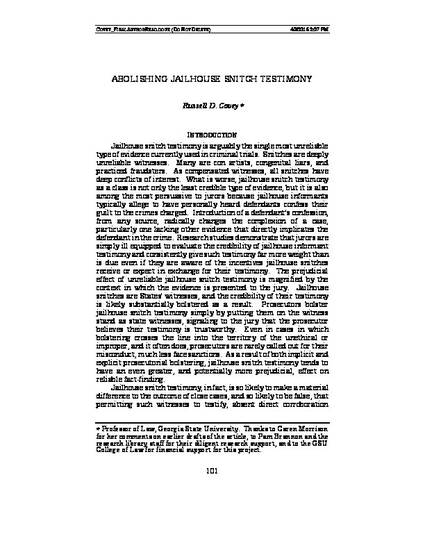
Jailhouse snitch testimony is inherently unreliable. Snitches have powerful incentives to invent incriminating lies about other inmates in often well-founded hopes that such testimony will provide them with material benefits, including in many cases substantial reduction of criminal charges against them or of the time they are required to serve. At the same time, false snitch testimony is difficult, if not altogether impossible, for criminal defendants to impeach. Because such testimony usually pits the word of two individuals against one another, both of whose credibility is suspect, jurors have little ability to accurately or effectively assess or weigh the evidence. Moreover, research suggests that jurors frequently succumb to fundamental attribution error and unwittingly fail to properly discount the reliability of evidence supplied by biased and self-interested witnesses.
Although a few jurisdictions have placed modest limits on jailhouse snitch testimony, no jurisdiction has banned jailhouse snitch testimony outright, relying instead on the traditional tools of trial practice – cross-examination and post-conviction review – to screen out unreliable evidence and safeguard defendants’ rights. These methods, however, are plainly insufficient, as demonstrated by the mounting evidence of wrongful convictions resulting from false snitch testimony. The only truly effective solution is the flat preclusion of jailhouse snitch testimony. The doctrinal infrastructure already exists to permit courts to move in this direction; the Supreme Court’s longstanding preclusion of coerced confession evidence provides a precedent readily applicable to confession evidence provided by jailhouse snitches. Although constitutionally-based exclusion of jailhouse snitch evidence is warranted, in all likelihood, change in this area will come, if it does, not through the courts but instead through legislative or executive action to take meaningful steps to reduce wrongful convictions.

External Links
Westlaw
Lexis Advance